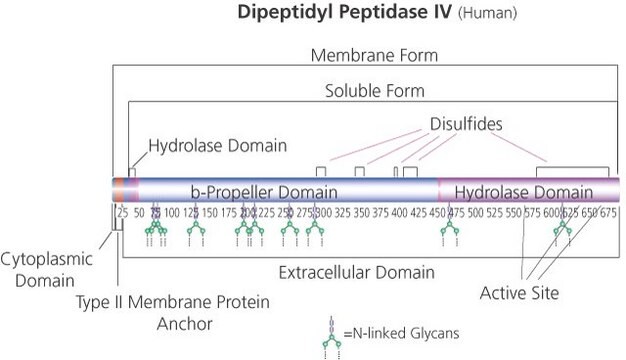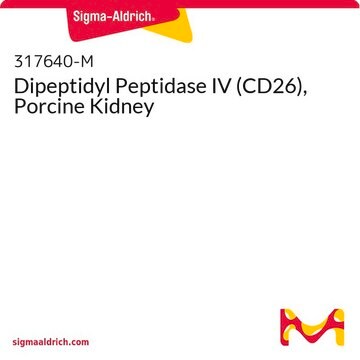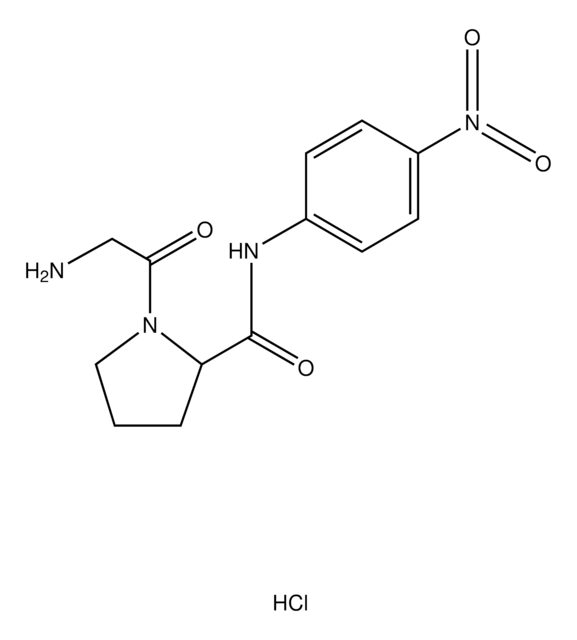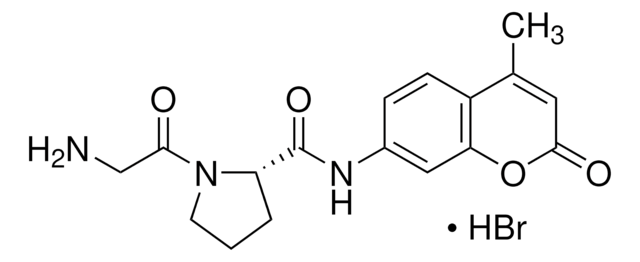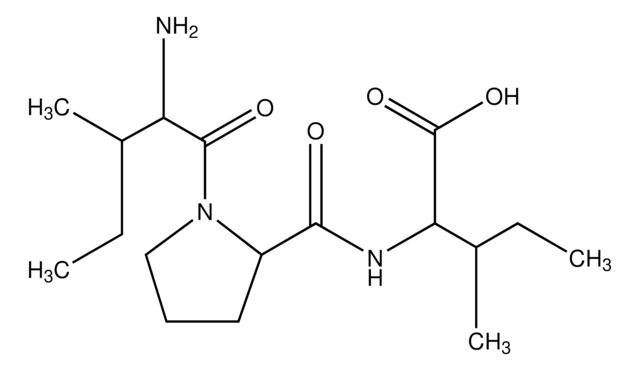D4943
Dipeptidyl Peptidase IV human
recombinant, expressed in baculovirus infected Sf9 cells, pkg of ≥1.0 units/vial, ≥10 units/mg protein
Synonyme(s) :
CD26, DPPIV, Dipeptidyl aminopeptidase IV, Glycoprotein GP110
About This Item
Produits recommandés
Produit recombinant
expressed in baculovirus infected Sf9 cells
Niveau de qualité
Forme
solution
Activité spécifique
≥10 units/mg protein
Poids mol.
105 kDa
Conditionnement
pkg of ≥1.0 units/vial
Numéro d'accès UniProt
Conditions d'expédition
wet ice
Température de stockage
−20°C
Informations sur le gène
human ... DPP4(1803)
Vous recherchez des produits similaires ? Visite Guide de comparaison des produits
Description générale
Application
Actions biochimiques/physiologiques
Définition de l'unité
Forme physique
Autres remarques
Inhibiteur
Substrat
Code de la classe de stockage
10 - Combustible liquids
Classe de danger pour l'eau (WGK)
WGK 1
Point d'éclair (°F)
Not applicable
Point d'éclair (°C)
Not applicable
Faites votre choix parmi les versions les plus récentes :
Déjà en possession de ce produit ?
Retrouvez la documentation relative aux produits que vous avez récemment achetés dans la Bibliothèque de documents.
Les clients ont également consulté
Notre équipe de scientifiques dispose d'une expérience dans tous les secteurs de la recherche, notamment en sciences de la vie, science des matériaux, synthèse chimique, chromatographie, analyse et dans de nombreux autres domaines..
Contacter notre Service technique